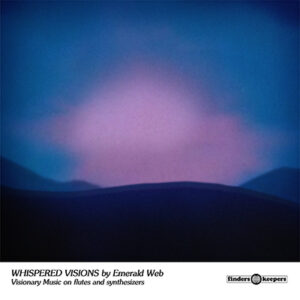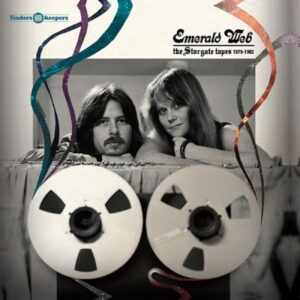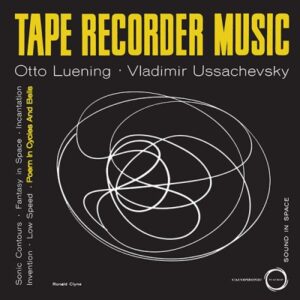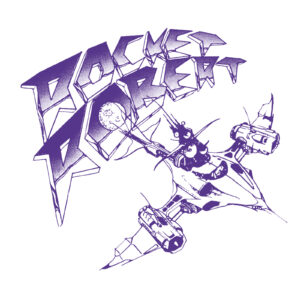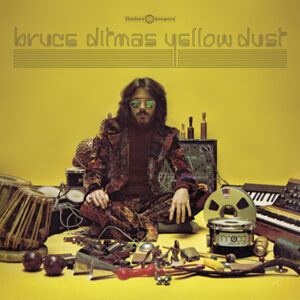Beschreibung
Tension. Performance. Resistance – our Zonic Spezial documenting underground cassette culture in the latter years of the GDR caused quite a stir when it first appeared in 2006. A collaborative effort with the legendary ZickZack label and Verbrecher publishing house, “Spannung. Leistung. Widerstand. Magnetbanduntergrund DDR 1979-1990” (to give the work its full title) caused many lis- teners, especially those in the West, to prick up their ears in astonishment when they played the book’s accompanying CDs. This odd potpourri of swirling post-punk manifestations was compiled with solid interpretive authority by Bert Papenfuß, Bo Kondren, Bernd Jestram, and Ronald Lippok. They did, however, erroneously attribute one piece to Jörg Thomasius and Dieter Zobel’s Ostkraut band Das Freie Orchester instead of the “Musik aus dem Regen” tape on their own Kröten Kassetten imprint.
Whilst the Zonic Spezial itself has become an eminently collectible rarity, Bureau B succeeded in making at least parts of the musi- cal spectrum available to a wider international audience with their 2014 release “Magnetband”. Serendipitously coinciding with the publication of a second book, “Magnetizdat DDR” (no listening material this time around), Bureau B now revisit the experimental electronic underground of the German Democratic Republic with two releases: “MEZ 31,00” – a solo cassette by Dieter Zobel aka Didier Leboz from the year 1989 – and this collection of Jörg Thomasius productions spanning the years 1980 to 1990.
Jörg Thomasius, otherwise known as Tomato, born in East Berlin in 1955, discovered progressive sounds in the early 1970s. He was increasingly drawn towards the electronic signals emanating from West Berlin, so close and yet so far away, carried on radio waves through the Iron Curtain and surfacing sporadically in eager record collector circles on the eastern side of the wall. A Venn diagram of interests brought Tomato into the same space as Andreas Grosser, renowned today for his legendary microphone repair skills. Grosser’s Dutch father had lost no time establishing contact with the West Berlin scene, sourcing equipment for congenial zeitgeist trips in his Berlin-Biesdorf garden arbour. On seeing this wired up chamber of wonders in late 1977, Thomasius was catapulted into the world of electronics. It was here that he would meet Terry Riley, handing out LSD on his eastern expedition. Grosser became a kind of mentor to Thomasius, who had started to explore the tape format. Even after leaving for West Berlin, Grosser would help him out with contacts and contraptions. Thomasius also struck up a rapport with Conrad Schnitzler and the pair spoke regularly on the telephone until they were finally able to meet in person in 1985. Thomasius had been working on a GDR radio show called Trend since 1981, albeit outside of any legal structures, and in 1982 he began writing “Innovation under adverse conditions” copy for the the English Eurock fanzine Neumusik alongside the GDR mainstream producer Wolfgang Fuchs from Pond. He was also a member of Das Freie Orchester (until 1989), an improvised formation of longish-haired freaks who had an idiosyncratic sense of humour. Kröten Kassetten was founded to cater to DFO and any solo or duo jaunts. Thomasius worked as a boilerman and exhibition technician for the Centre for Art Exhibitions of the GDR, compatible with his bohemian lifestyle and affording him access to a typewriter and telephone line. He set about introducing Kröten sounds to the international market via deals with labels in the UK; Italy, Norway and the USA. Ken Montgomery, who ran the American label Generations Unlimited, organized an illegal Schnitzler performance in East Berlin’s Church of the Redeemer in 1986 which was also made available via Kröten channels, whilst the Thomasius LP “Tomato” was released on Generations Unlimited in 1989.
The material collected on “Acht Gesänge der schwarzen Hunde” comes from three places: the “Schwarze Hände” cassette with productions from 1980-1985, released on Werner Piepner’s Transmitter label, the 1989 Kröten cassette “Gesänge der Komparsen” and “After Eight” from the year 1990, issued on the Tomato label after Thomasius had left the DFO. Spanning a full decade, the selection presents Thomasius as the multifaceted artist he is, even if he sees himself as more of an experimental DIY sonic creator: spherical, elegaic sounds float around whimsical jewels of extreme playfulness, weaving obscure vocal fragments into strange min- imal constructs.
Ten years of creativity under GDR conditions, more of which is recounted in the book “Magnetizdat DDR” were followed by another ten in reunified Berlin. Thomasius teamed up with Conrad Schnitzler and Lars Stroschen to run the Tonart label, but those stories, along with the subsequent Thomasius hiatus, will have to wait for another day. Now is the time to (re)discover him all over again.
Tracks
01. Besen im Kopf
02. Okoschadel
03. Küss mich mein Liebchen
04. Malcom Makes The World Go Round II
05. Dritter Komparsengesang
06. Paradiesvögel
07. Überdachtes Klavier
08. Erste Himmelsmelodie
09. Nikolaus der Erste
10. Meditation

